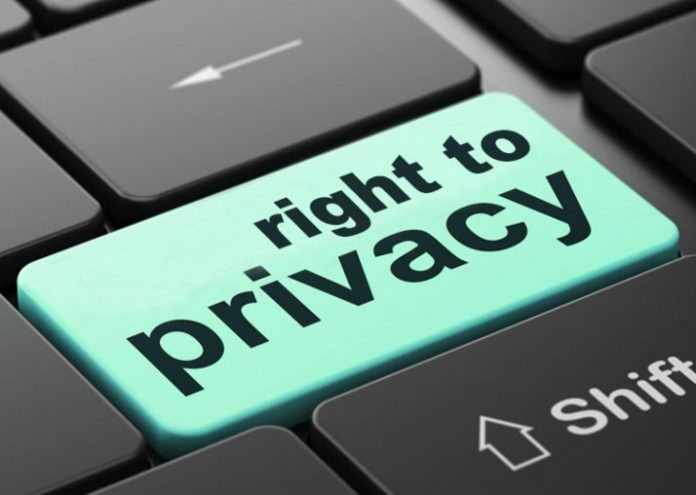This article is written by Aporva Shekhar from KIIT School of law. This article is a brief analysis of the cases filed against the prohibition of liquor because it violates the right to privacy.
Table of Contents
Introduction
The case of Rajiv Piyush Patel v. State of Gujarat (2020) was dismissed on the ground of maintainability initially as the opposing counsel for the state had pointed out that the writ petition cannot appear for an appeal after the Supreme Court had already upheld the prohibition in the case of State of Bombay v. F.N. Balsara (1951). But the petitioners then stated that the grounds for the new petition were the right to privacy and manifest arbitrariness, and both were very recently given recognition and hence the Supreme Court could not have passed a decision based on these considerations originally in the above-mentioned case. And therefore the Gujarat High Court had to reverse its original stance passed in the case of Rajiv Piyush Patel v. State of Gujarat. This case has brought forth new considerations for the judiciary to analyse with respect to the validity of the prohibition law.
Grounds for challenging the prohibition
On June 21st, 2021 the Gujarat High Court admitted petitions challenging the validity of the prohibition law on liquor in the state of Gujarat. The petition targeted the prohibition on two grounds, being that it violated the right to privacy and on the principle of manifest arbitrariness.
Fundamental rights aspect
In the historic judgement of KS Puttaswamy v. Union of India (2017), the Supreme Court of India gave recognition to the right of privacy as a fundamental right guaranteed by our Constitution. With reference to the right of privacy, the prohibition in parts of India has been challenged as being violative of this fundamental right. The argument put forth by the challengers was that the right to drink alcohol within one’s home comes under the ambit of the right to privacy. Various attempts have been made to define privacy and therefore different interpretations exist. Black’s Law Dictionary describes it to be the right of an individual to be exempt from unnecessary public interference. The right to privacy can be further bifurcated into two broad categories, namely being that of personal and information-related privacy. Personal privacy refers to the right that extends to protect an individual and their personal space from unnecessary interference as explained in the Black’s Law dictionary. Information privacy refers to the protection granted to personal information such as bank details, passwords and other technical information whose release could impact an individual’s life. In the current context, the right of privacy being referred to is that of personal privacy. In today’s age of connectivity, privacy is an important asset that protects us from unwanted interference from government and institutions in our lives. The landmark case of K.S. Puttaswamy v. Union of India(2017) the right to privacy was given recognition under Articles 14, 19 and 21 by a nine-judge bench.
The country does not have any specific laws protecting privacy but the existing fundamental rights have been given a broader ambit to include the right to privacy. The concept of the right to privacy is a recent development in India, given recognition in 2017. The petitioners in the present case against the liquor prohibition in Gujarat contended that the right to privacy was not recognized in the original case file in 1950. A constitutional bench passed another similar judgement in 1994, dealing with the petitions challenging the validity of statutory rules prohibiting liquor trade by private institutions in the case of Khoday Distilleries Ltd. v. State of Karnataka (1994). The main issue in this case that was dealt with by the courts was whether such a prohibition was violative of Article 19(1)(g), the court answered negatively to this question of law and relied on the provisions given under Article 47 of the Constitution to justify their observation. The court further added that institutions harming public interest can be completely prohibited with other institutions being permitted to operate with reasonable restrictions. But the existing stance of law with regards to the right to privacy and drinking liquor is that legitimate State interests must take precedence in given circumstances over the recognized right of privacy.
Manifest arbitrariness
Manifest arbitrariness is a recently developed legal principle that is being used to strike down legislation that is in conflict with the provisions of Article 14 of the Constitution. Although there is no clarity regarding its application, it includes all legislations that are made capriciously based on prejudice and as opposed to reason or fact to be arbitrary in nature. Plenary legislation can only be invalidated in cases where the Act is patently perverse or illegal, and hence the courts give precedence to the intent of the legislature in most cases. Determining the validity of plenary legislation should be guided by judicial restraint in all cases. There are conflicting views given by various judgements as to the validity of arbitrariness and the counsels’ reliance upon the doctrine to invalidate legislation on that ground has made it imminent for a larger bench to decide its validity once and for all.
Opinion of the courts
So far, all the judgements with reference to petitions against the prohibition of liquor laws have been in favour of the state rather than the petitioner and even in cases where several sections of the probation acts were struck down the Act as a whole remained valid. Courts have previously established that there exists no right in cases of trades that are injurious to health. The States have been empowered by the Constitution to undertake welfare activities and make an attempt to increase the level of nutrition and overall well-being of its people. And as such the activities of prohibition and curtailment of injurious and intoxicating substances comes under the purview of state jurisdictions. While several people of the years have argued that such unnecessary government interference amounts to arbitrariness and violating one’s fundamental rights, the courts have concurrently sided with the legislative intent of the states to terminate social evils. It has been established by several decisions that the interest of the public takes precedence over the right to privacy. As such in the present case as well, it might be argued that the judiciary might arrive at the same conclusion that alcohol consumption which is considered as a social evil needs to be regulated by the state even if it violates the right to privacy.
Since the right to privacy is a relevantly new fundamental right that has been recognised, it does not have any relevant precedent determining its ambit with reference to liquor consumption. But we can equate the intent of the judiciary from similar judgements that adjudicate the dispute regarding the prohibition of alcohol and the fundamental right of trade as mentioned under Article 19. The judiciary has reiterated its stance, again and again, stating that a citizen may not claim any fundamental right with reference to activities that are inherently pernicious and abhorrent. If this principle established by the judiciary is taken into account then the act of drinking itself might be considered as a pernicious abhorrent activity and hence even if drinking within one’s house came within the purview of the right to privacy, it might not be accepted by the courts. It is a novel subject matter and hence only the court’s decision can provide some clarity upon the extent of the right to privacy and the prohibition of liquor.
Relevant judicial precedents
Maneka Gandhi v. Union of India (1976)
This landmark case widened the ambit of Article 21 of the Constitution allowing for the wider interpretation of the terms life and liberty as described under this article. The Ministry of External Affairs refused to provide any reason to the petitioner for the confiscation of her passport citing the reason to be the interest of the general public. In response to this, the petitioner filed a writ petition against the order, challenging it under Article 32 in the Supreme Court, contesting that the impugned order violated her personal liberty and fundamental right under Article 21. The Court decided that the mere existence of an unreasonable law is not grounds enough to violate the fundamental rights of a person.
Justice K.S. Puttaswamy v. Union of India (2017)
In this case Justice K.S. Puttaswamy, a retired High Court judge, filed a writ petition to challenge the UPA Government’s Adhar Card scheme. A three -judges bench on 11th August 2015, ordered a bench of appropriate strength to decide whether the right to privacy exists as a fundamental right by asking them to examine the validity of judgements in the cases of, Kharak Singh v. State of Uttar Pradesh(1962) and M.P. Sharma and Ors. v. Satish Chandra(1954). Originally this matter was referred to a five-judge bench and subsequently, on 18th July 2017, this matter was referred to a nine-judge bench. A landmark unanimous decision was given on 24th August 2017 after much deliberation by the bench overruling the earlier case and establishing that the right to privacy comes within the ambit of Part II under Article 21 of the Constitution of India.
State of Bombay and Anr. v. F.N. Balsara (1951)
This case mainly focused on the ambit of the Bombay Prohibition Act 1949 and whether alcohol-infused drugs and toiletries are also covered under the above-mentioned Act, and should their sale, distribution and production be prohibited. The Doctrine of Pith and Substance was applied in this case to determine the true intent and nature of the above-mentioned legislation. The petitioner contended that the above-mentioned statute was violative of Article 19(1)(g) and therefore should be declared void. The above-mentioned Act as a whole was not declared void by the Supreme Court, but rather the parts that were not in conformity with Article 19(1)(g) were scrapped, that were concerned with sale, distribution and production of alcohol-infused drugs and toiletries.
Kerala Bar Hotels Association v. State of Kerala (2015)
This case mainly focused on the Akbari Policy of 2014-15 which enabled several heritage hotels and other five-star and four-star hotels to exclusively serve alcohol in the state of Kerala. The judgement given in this case, which upheld the State Government’s decision to exempt certain classes of hotels from the prohibition compliance was criticised by scholars as it failed to address the argument brought forth against the exemption which stated that the exemption was violating the right to equality under Article 14 of the Constitution of India. But the judgement sought to eliminate the social evil of alcohol addiction by curbing its supply to a limited class of hotels only and disrupting the widespread availability of spurious alcohol.
Anoop M.S. v. State of Kerala (2017)
In this case, the division bench upheld the government’s decision to prohibit alcohol in the Supreme Court while relying on the decision of Kerala Bar Hotels Association v. the State of Kerala(2015). It was decided that the prohibition and regulation of the consumption of liquor do not constitute a violation of the right to privacy. The observation made by the court was that Article 47 of the Constitution empowers and mandates that the state governments should if not entirely curtail but should make an attempt to prohibit and regulate the consumption of liquor. It was further stated that when fundamental rights and the directive principles clash the common good of the society takes precedence and all fundamental rights, the right to privacy is also subject to reasonable restrictions and therefore prohibition in the public interest does not violate the fundamental right to privacy.
Conclusion
The right to privacy is a novel concept, not only in India but also abroad, but after it was given recognition as a fundamental right it also became subject to certain reasonable restrictions. It has been already established that though fundamental rights are guaranteed by the state they do not take precedence over State interests. The right to privacy is still and its associating jurisprudence is still in its nascent stage and needs further clarity that can only be given by the judiciary.
References
Students of Lawsikho courses regularly produce writing assignments and work on practical exercises as a part of their coursework and develop themselves in real-life practical skills.
LawSikho has created a telegram group for exchanging legal knowledge, referrals, and various opportunities. You can click on this link and join:
 Serato DJ Crack 2025Serato DJ PRO Crack
Serato DJ Crack 2025Serato DJ PRO Crack










 Allow notifications
Allow notifications


